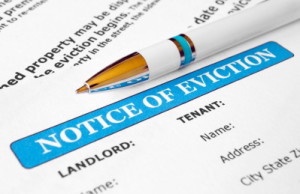 Evicting a tenant is a headache for landlords in every aspect. Whether the tenant is neglecting his obligation to pay rent or for any other reason, the eviction process is not as simple as a business closing their doors. A smart landlord will minimize their losses by beginning the eviction proceeding as soon as necessary, as the proceeding may take one or two months to complete. Learn from the following mistakes and you will save money while avoiding added stress.
Evicting a tenant is a headache for landlords in every aspect. Whether the tenant is neglecting his obligation to pay rent or for any other reason, the eviction process is not as simple as a business closing their doors. A smart landlord will minimize their losses by beginning the eviction proceeding as soon as necessary, as the proceeding may take one or two months to complete. Learn from the following mistakes and you will save money while avoiding added stress.
1. Trying to Do it Alone
Hiring a qualified attorney to review the lease and identify any possible loopholes may be less costly than the tenant exploiting them in court. Understand that each state has unique tenant/landlord laws. The available paperwork that can be found in courts may seem clear-cut and it will be tempting to forego the lawyer fees. Do not be caught unprepared, have a professional help you.
2. Waiting Too Long Before Filing The Eviction Notice
For a variety of reasons often landlords prolong the process of eviction. Giving the tenant a second chance, being too busy with other work, or wanting to avoid the process completely are a few examples of expensive decisions made by landlords. The simple fact of the matter is their losses will continue to accumulate by delaying the eviction process. In many states, the eviction proceeding begins via a letter notifying the tenant that they have a specific amount of time to get current on rent or fix the issue causing eviction. The documentation will add significant pressure to the tenant, set clear expectations, and give the landlord extra time to set a court date if needed.
3. Filing Too Late
Similar to the mistake mentioned above, filing an eviction notice too late may result in not recovering any of the money sought after. It seems reasonable to wait until the tenant has the money you're seeking - but wait too long and they could be gone one day without leaving a forwarding address. Avoid this mistake by seeking the funds while they are still living in your property or present them with the court papers required to collect their debts.
Before your next tenant moves in, you'll need to make sure the property is ready for them. Use our free Make-Ready Checklist to ensure you don't miss anything. Click the link below for your free download.

